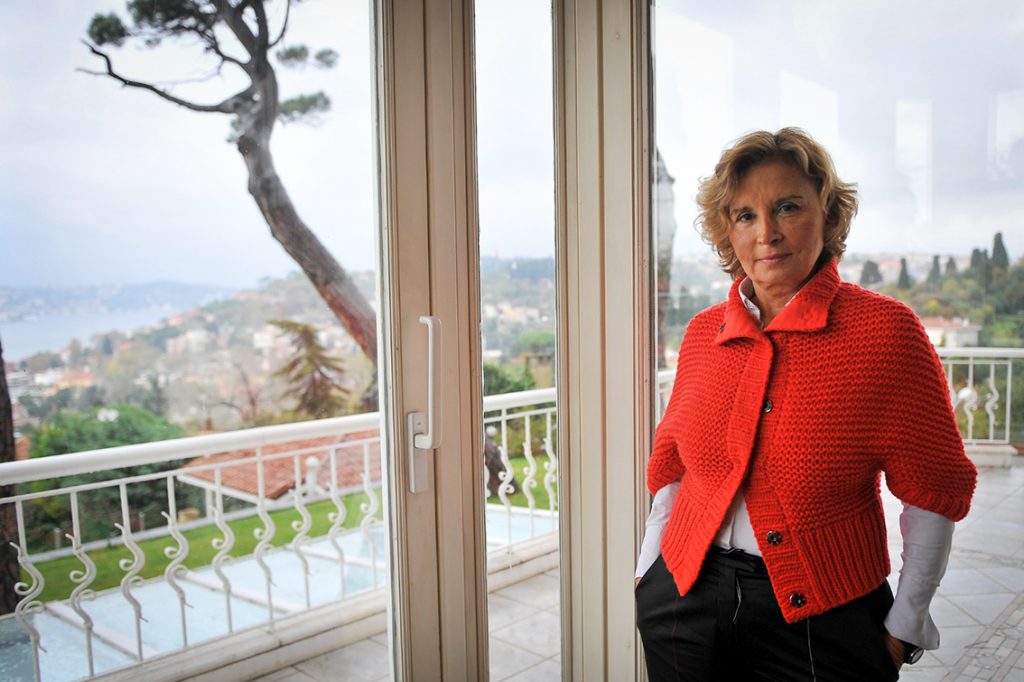Prominent Turkish journalist Nazlı Ilcak has been sent to prison to serve a sentence handed down on conviction of libeling a public prosecutor, the T24 news website reported.
Ilıcak, 79, turned herself in at a prison in the northwestern province of Sakarya on Monday after an appeals court upheld her two-and-a-half year sentence.
Ilıcak was tried by an İstanbul court in 2021 and 2022 due to criminal complaints filed by prosecutor Orhan Kapıcı, who claimed that she had libeled him in an article she wrote in 2016.
The journalist’s lawyer, Kemal Ertuğ Derin, said Ilıcak was hoping to serve her sentence at an open prison but was told she has to be incarcerated at a closed prison due to an earlier conviction on charges of espionage, which was suspended.
The lawyer said Ilıcak will remain in prison for two to three weeks and then be transferred to an open prison from where she is likely to be released on probation.
Short sentences are normally suspended in the Turkish judicial system unless the person has an earlier conviction that was suspended. In such a case, they are sent to prison.
In the article she wrote on June 16, 2016 on the now-closed Özgür Düşünce (Free Opinion) website, Ilıcak said, based on a claim made by former police chief Hanefi Avcı, that there was a group in the Turkish bureaucracy called Milli Damar (National Vein) that was conspiring against other bureaucrats, alleging that they had links to terrorist groups.
Kapıcı was one of the people in the group mentioned by Ilıcak.
The earlier sentence on conviction of espionage had been given to Ilıcak by a high criminal court in İstanbul for revealing state secrets. The almost six-year prison sentence had been suspended.
It is not the first time that Ilıcak has been jailed due to her journalistic activities.
She was among the dozens of journalists arrested in the aftermath of a failed coup on July 15, 2016 as part of a widespread crackdown the government launched on its dissidents under the pretext of an anti-coup fight.

She used to work for media organizations affiliated with the Gülen movement, a faith-based organization accused by the Turkish government of masterminding the failed coup. The movement strongly denies any involvement in the failed putsch.
Membership in a terrorist organization and participating in the attempted coup were the accusations lodged against the journalist.
Ilıcak was initially convicted and sentenced to life in prison, but the conviction was overturned by the Supreme Court of Appeals and, after a retrial, she was sentenced to eight years, nine months, this time “for voluntarily aiding and abetting a terrorist organization without holding membership in it.” She was released by the court under judicial supervision in November 2019, and in April 2021 the top appeals court again overturned Ilıcak’s conviction. The criminal proceedings are still ongoing.
Meanwhile, European Court of Human Rights (ECtHR) ruled in December 2021 that working for media outlets close to the Gülen movement and expressing doubts about the Turkish government’s narrative on the failed coup were not plausible grounds for terrorism-related charges.
Faulting Turkey for violating Ilıcak’s rights to liberty and security as well as freedom of expression, the ECtHR stated that the charges that led to her imprisonment for more than three years weren’t plausible.
“I’m very happy about this ruling. … Unfortunately, the ruling was made by five [judges], with one dissenting vote by a Turkish judge. Well, we spent three years and four months in prison. So what’s done is done. They convicted us on terrorism charges. … What did we do to become a terrorist [organization] member?” Ilıcak said at the time.
She had to take her case to the ECtHR because Turkey’s Constitutional Court rejected her individual application.
Ilıcak became critical of the Justice and Development Party (AKP) government, particularly after the corruption investigations of December 2013, in which the close circle of then-prime minister and current president Recep Tayyip Erdoğan was implicated, and has been vocal in her views despite intimidation.
Her long career as a journalist notwithstanding, Ilıcak entered politics from the ranks of the Virtue Party (FP) and served in parliament for one term with politicians who established the AKP after the closure of the FP.



